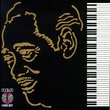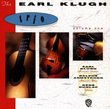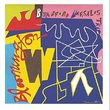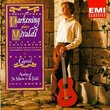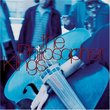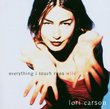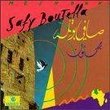| All Artists: Milton Nascimento Title: Clube Da Esquina Members Wishing: 6 Total Copies: 0 Label: Blue Note Records Release Date: 2/7/1995 Genres: International Music, Jazz, Pop, Latin Music Styles: South & Central America, Brazil, Latin Music, Samba, Latin Jazz, Latin Pop Number of Discs: 1 SwapaCD Credits: 1 UPCs: 724383042920, 0724383042951, 0724383225958, 766487578141, 094635672954 |
Search - Milton Nascimento :: Clube Da Esquina
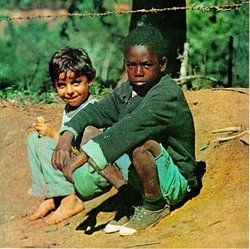 | Milton Nascimento Clube Da Esquina Genres: International Music, Jazz, Pop, Latin Music
Tracks: (Disc 1) 1 - Tudo que voce podia ser ; 2 - Cais ; 3 - Trem azul ; 4 - Saidas de banheiras n1 ; 5 - Nuvem cigana ; 6 - Cravo e canela ; 7 - Dos cruces ; 8 - Um girassol da cor de seu cabelo ; 9 - San vicente ; 10 - ... more » |
Larger Image |
CD DetailsSynopsis
Product Description Tracks: (Disc 1) 1 - Tudo que voce podia ser ; 2 - Cais ; 3 - Trem azul ; 4 - Saidas de banheiras n1 ; 5 - Nuvem cigana ; 6 - Cravo e canela ; 7 - Dos cruces ; 8 - Um girassol da cor de seu cabelo ; 9 - San vicente ; 10 - Estrelas ; 11 - Clube da esquina n2 ; 12 - Paisagem da janela ; 13 - Me deixa em paz ; 14 - Os povos ; 15 - Saidas e bandeirantes n2 ; 16 - Um gosto de sol ; 17 - Pelo amor de deus ; 18 - Lilia ; 19 - Trem doido ; 20 - Nada sera como antes ; 21 - Ao que vai nascer ; Similarly Requested CDs
|
CD ReviewsCelebrating a friendship Mauricio Bussab | Sao Paulo, SP Brazil | 03/16/2005 (5 out of 5 stars) "This is both the high point and the beginning of the end of a long friendship (as beautifully told in the book Sonhos nao Envelhecem, available only in portuguese :-( ) The Clube da Esquina was a loosely bound group of friends from Belo Horizonte, a city located in the middle of the Brazilian territory, in the Minas Gerais state, far away from the sea. They got together in the 70s to play music, drink beer and talk about the Beatles, a band they loved. Milton was the obvious star in the group but all of them were immensely talented and had a lot to contribute as is clear in their solo work (Lo Borges albums are masterpieces if you are able to overlook his vocal flaws and Beto Guedes is pretty good too). Notice that by then Milton was not the superstar he became after. This album is signed by both him and Lo Borges. This is still a group effort. The album has a very free style. It sounds lyrical, obviously Beatles influenced, smooth, gentle, the Brazilian rhythms presented there are not the ones you are used to, a lot comes from their native Minas Gerais state. It is the product of a group of friends having a lot of fun playing together. The group began to dissolve slowly after this album. Milton got famous, started hanging out with a different crowd, you know how it goes, how all friendships end... The follow-up to this double LP is another double LP (Clube da Esquina 2) that features major stars of the time, lavish production and has a different beauty to it, maybe it is even more musically relevant than this one. But this is the more sincere and is generally considered the best. My personal opinion is that if you like Brazilian music you should have both :-)" Classic Rock Without the FM. David S. Minjares | Montebello, CA. USA | 01/13/2002 (5 out of 5 stars) ""Clube da Esquina", or "The Corner Gang", may look and sound like another Brazilian/Latin record on the surface, but that's where it all ends. The racially mixed cover portrait of children sitting together should be a slight indication.Tropicalia was a late 60's movement in Brazil where the limitations of then-traditional/popular music (i.e. brazileiras, bossa nova, batucada, choros, etc.) were charged around by the use of British/American pop-rock influences. Talents like Os Mutantes, Lo Borges, Caetano Veloso, Gilberto Gil, Milton Nascimento and others took the liberties of the above and created a music that, though poking fun & rebellion at already set national musical values, was actually quite complimentary & evolutionary. Though a lot of the older generation did not welcome it with open arms (this was 1966-1969), Tropicalia not only matured Brazilian music & gave it an undeniable social awareness (though some sentiments did not settle well with the then-government and, as a result, some musicians/composers were jailed & questioned about their lyrical content), but was also an important and underwritten chapter in psychedelic music.Milton Nascimento & Lo Borges' great project "Clube Da Esquina", recorded in 1972, brings the whole Tropicalia movement full circle. Though all of the songs are sung in Portuguese (save for one, a haunting cover of "Dos Cruces", sung in Spanish), there is an urgency and edginess in the music that is undeniable. Electric guitars, basses and organs are inescapable here and used in a fashion that not only brings a truly modern & progressive twist to Brazilian folk forms, but an adventurousness & unpredictability that is not usually associated with Brazilian music (at least, not with the United States).All 21 tracks present a song cycle that expresses all of the country's music and social climate up to that point. All moods are direct throughout. They can range from the haunting ("Tudo Que Voce Podia Ser" & "Os Povos", the latter with a wonderful vocal performance from Alaide Costa), to psychedelic ("Pelo Amor De Deus", "Trem De Doido"), to absolutely somber ("Cais", "Dos Cruces" & "Ao Que Vai nascer") to even a few poppier & playful oments along the way. Yet, with what may be considered to be schitzophrenic to some, it's very consistent & cohesive all throughout. And to also note that there isn't a bad track on here, also helps the above statement.Plenty of great playing, singing and writing, too: Nascimento, brothers Lo & Marcio Borges, Ronaldo Bastos, Toninho Horta, Eumir Deodato, Wagner Tiso, Robertinho Silva, Beto Guedes, etc. All strong players and, more importantly, contributors.And yet, this is an album that ranks right up there in equal status alongside "Piper At The Gates Of Dawn", the United States Of America's debut, Love's "Forever Changes", Sly's "There's A Riot Goin' On" and even recent alternative masterpieces like Wire's "Pink Flag", R.E.M.'s "Murmur" and even Radiohead's most progressive material. If you're a ProgRock head, you'll love this. If you're looking for something new and unheard of, this will NOT disappoint. If you want to expand your knowledge about Brazilian music, this is a great addition to your collection.It's a powerful record. Plenty of talent, great songs and true artistic risk-taking. The only favor asked once you've been initiated to this album's charms is to spread the word to anybody who cares. You want to keep it a trade secret, but the music says otherwise.A TRUE Latin-Rock MASTERPIECE." Third of Milton's Masterpieces Juan Mobili | Valley Cottage, NY USA | 11/17/2003 (5 out of 5 stars) "This is another stunning jewel by Milton (check Minas and Geraes being, to me, the other two). It precedes those two other albums by about a couple of years, yet it does not stay behind in terms of its capacity to move and surprise with its beauty. Unlike Minas and Geraes, this album is more of a collaborative effort, counting on almost every great musician in Brazil to give it its identity (see the excellent review by David Mijares, right before mine, for a thorough and loving chronicle of what this album represented in Brazilian popular music and the people who brought it to be such a tremendous work).
Because it is the work of a community of talented artists, rather than a personal vision alone, it does not have the integrity of the other works mentioned but this is, by far, not a loss. In the contrary, it offers, instead, an edge and diversity that keeps stunned from beginning to end. You have to remember that it was recorded in 1972, to appreciate the revolutionary quality of what it offers, and recognize to what extent its music was out on the proverbial skinny branches of the Tropicalia's tree. And, whereas other albums called "experimental" suffer from a certain uneven output, this one hits the mark tune after tune. If Minas or Geraes could be considered his Sgt. Pepper or White Album (to draw an analogy with Lennon and McCartney whom Milton loves), Clube Da Esquina 1 is his Revolver. If you can afford it, buy all three of these beauties, your soul will thank you for their unending nourishment." |

 Track Listings (20) - Disc #1
Track Listings (20) - Disc #1